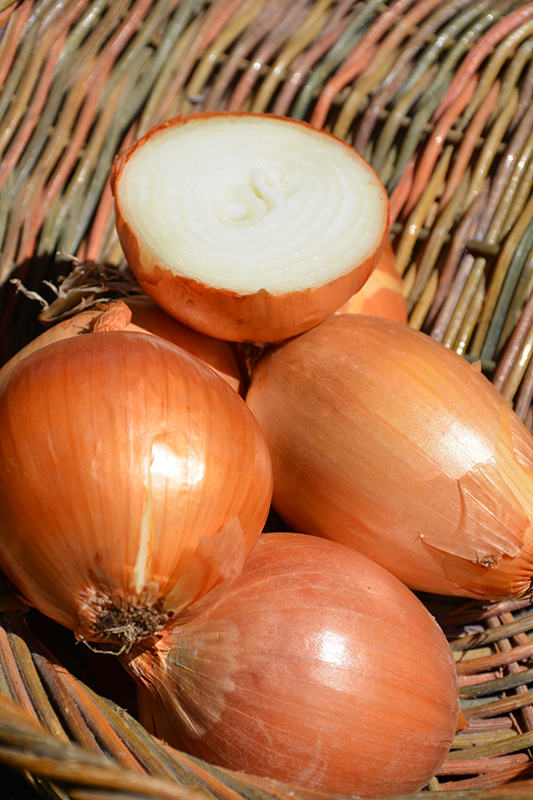Height: 18 inches
Spacing: 8 inches
Sunlight:
![]()
Hardiness Zone: (annual)
Description:
A staple in any kitchen, this variety is perfect for patio containers or gardens; produces dry onions with coppery paper skins and white to pale yellow flesh; pungent and sharp, ideal for soups, stews and braises; sweet and delicious when caramelized
Edible Qualities
Yellow Onion is an annual vegetable plant that is typically grown for its edible qualities. The entire above-ground parts of the plant are edible, and are typically harvested when mature. The edible parts have a sharp taste and a firm texture.
The plant is most often used in the following ways:
- Fresh Eating
- Eating When Cooked/Prepared
- Cooking
- Baking
- Sauces
Planting & Growing
Yellow Onion will grow to be about 18 inches tall at maturity, with a spread of 6 inches. When planted in rows, individual plants should be spaced approximately 8 inches apart. This vegetable plant is an annual, which means that it will grow for one season in your garden and then die after producing a crop.
This plant is typically grown in a designated vegetable garden. It should only be grown in full sunlight. It does best in average to evenly moist conditions, but will not tolerate standing water. It is not particular as to soil type or pH. It is highly tolerant of urban pollution and will even thrive in inner city environments. This is a selected variety of a species not originally from North America, and it is considered by many to be an heirloom variety. It can be propagated by multiplication of the underground bulbs; however, as a cultivated variety, be aware that it may be subject to certain restrictions or prohibitions on propagation.
Yellow Onion is a good choice for the vegetable garden, but it is also well-suited for use in outdoor pots and containers. It is often used as a 'filler' in the 'spiller-thriller-filler' container combination, providing the canvas against which the larger thriller plants stand out. Note that when growing plants in outdoor containers and baskets, they may require more frequent waterings than they would in the yard or garden.
A NetPS Plant Finder tool


